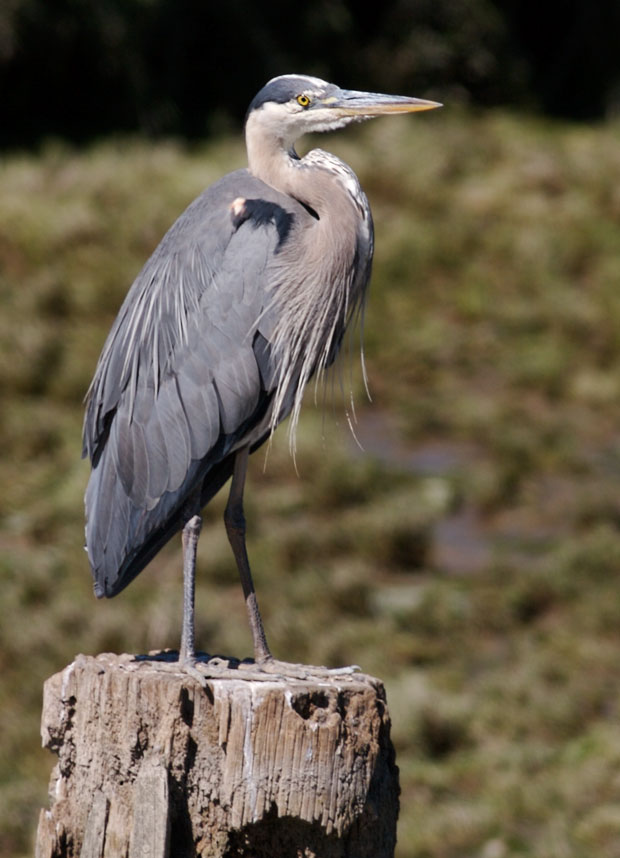The main reason it’s so hard to understand Pirsigs Metaphysics of Quality is because he uses a shotgun approach in his attempts to prove that “It is Quality, not dialectic, which is the generator of everything we know.” While this method seems to fit quite well with the narrator’s gradual revealing of Phaedrus’s arguments as he gradually recalls his own past, it’s less convincing as a philosophical argument, even when the reader is sympathetic, as I certainly am, to Pirsig’s argument that quality is largely what is missing in much of modern life and offers the possibility of reconciling those who see life primarily from a technological viewpoint and those who see it from an aesthetic viewpoint.
Simply put, while I’m still convinced ZAMM is an important 20th century novel, even though technically it’s no longer a “novel” because it’s largely biographical, I’m not ready to discard my largely Platonic, archetypal, view of the world for Pirsig’s view. Nor am I convinced that they are really that different, in ways I’ll try to point out later.
On a first reading, Pirsig offers some convincing arguments as to the importance of Quality in our lives. And I rather enjoyed one method of thinking that I hadn’t encountered before:
I was talking about the first wave of crystallization outside of rhetoric that resulted from Phaedrus’ refusal to define Quality. He had to answer the question, If you can’t define it, what makes you think it exists?
His answer was an old one belonging to a philosophic school that called itself realism. “A thing exists’ he said, “if a world without it can’t function normally. If we can show that a world without Quality functions abnormally, then we have shown that Quality exists, whether it’s defined or not.” He thereupon proceeded to subtract Quality from a description of the world as we know it. Phaedrus found this last to be extremely interesting. The purely intellectual pursuits were the least affected by the subtraction of Quality. If Quality were dropped. only rationality would remain unchanged. That was odd. Why would that be?
He didn’t know, but he did know that by subtracting Quality from a picture of the world as we know it, he’d revealed a magnitude of importance of this term he didn’t known was there. The world can function without it, but life would be so dull as to be hardly worth having In fact it wouldn’t be worth living. The term worth is a Quality term. Life would just be living without any values or purpose at all.
This seems to me to be valid way of deciding how important something is to our lives, and it seems to prove that Quality is an important component of our lives.
Of course, proving that something is an important quality in life is rather different than proving that it is the essential element in life, which is exactly what Pirsig tries to prove a little later in this argument
“In our highly complex organic state we advanced organisms respond to our environment with an invention of many marvelous analogues. We invent earth and heavens, trees, stones and oceans, gods, music, arts, language, philosophy, engineering, civilization and science. We call these analogues reality. And they are reality. We mesmerize our children in the name of truth into knowing that they are reality. We throw anyone who does not accept these analogues into an insane asylum. But that which causes us to invent the analogues is Quality. Quality is the continuing stimulus which our environment puts upon us to create the world in which we live. All of it. Every last bit of it.
which reminds me a little of Wallace Steven’s concept of Imagination, another theory I find impossible to accept as the ultimate arbitrator of what is real. Of course, I have enough of my life invested in the idea of the importance of Quality to my life, that I’d like to believe this, but wanting to believe something is rather different than actually believing in. In fact, it reminds me a lot of an Emily Dickinson poem that equates Truth and Beauty:
I DIED for beauty, but was scarce
Adjusted in the tomb,
When one who died for truth was lain
In an adjoining room.
He questioned softly why I failed?
“For beauty,” I replied.
“And I for truth,—the two are one;
We brethren are,” he said.
And so, as kinsmen met a night,
We talked between the rooms,
Until the moss had reached our lips,
And covered up our names.
The artist in me wants to believe that, and you can certainly make some convincing arguments that they are equivalent, at least on a Platonic level, but too much of my own experience tells me that it ain’t so, that, in fact, the very opposite might be a more accurate description of the mess we’ve made of our world.
Having spent considerable time studying the Tao Té Ching in recent years, I nearly broke out in laughter when I read this passage:
He answered himself that the difference was one of definition. Metaphysical entities are defined. Mystical Ones are not. That made Quality mystical. No. It was really both. Although he’d thought of it purely in Philosophical terms up to now as metaphysical, he had all along refused to define it. That made it mystic too its indefinability freed it from the rules of metaphysics.
Then, on impulse, Phaedrus went over to his book shelf and picked out a small, blue, cardboard-bound book. He’d hand-copied this book and bound it himself years before, when he couldn’t find a copy for sale anywhere. It was the 2,400-year-old Tao Te Ching of Lao Tzu. He began to read through the lines he had read many times before, but this time he studied it to see if a certain substitution would work. He began to read and interpret it at the same time.
He read:
The quality that can be defined is not the
Absolute Quality.
That was what he had said.
The names that can be given it are not Absolute names.
It is the origin of heaven and earth.
When named it is the mother of all things.
Phaedrus read on through line after line, verse after verse of this, watched them match, fit, slip into place. Exactly. This was what he meant. This was what he’d been saying all along, only poorly, mechanistically. There was nothing vague or inexact about this book. It was as precise and definite as it could be. It was what he had been saying, only in a different language with different roots and origins by strangers but as a part of the valley he was from. He was seeing it all.
He had broken the code.
He read on. Line after line. Page after page. Not a discrepancy. What he had been talking about all the time as Quality was here the Tao, the great central generating force of all religions, Oriental and Occidental past and present, all knowledge, everything.
Now I must admit that I’ve sometimes thought that the Tao offers a pretty good description of The Force often referred to in the Star Wars series, but I’d never seriously thought of trying to substitute any concept but the Taoist one in the poem, though like many religious works it’s vague enough that it can take on many different interpretations.
What stopped me from laughing, though, was this passage that concludes the passage just quoted:
Then his mind’s eye looked up and caught his own image and realized where he was and what he was seeing and… I don’t know what really happened… but now the slippage that Phaedrus had felt earlier, the internal parting of his mind, suddenly gathered momentum, as do the rocks at the top of a mountain. Before he could stop it, the sudden accumulated mass awareness began to grow and grow into an avalanche of thought and awareness out of control; with each additional growth of the downward tearing mass loosing hundreds of times its volume, and then that mass uprooting hundreds of times its volume more, and the hundreds of times that; on and on, wider and broader until there was nothing left to stand.
No more anything.
It all gave way from under him.
The narrator seems to suggest that with this insight that Phaedrus had slipped into insanity. But of course, Pirsig has told us in the prologue that Phaedrus was never insane, that the narrator is a conformist who has chosen to conform to society’s views rather than to remain committed. Does that mean, then, that Pirsig is offering this as an accurate description of his ideas? To me it’s an overreaching that tends to undercut his argument rather than to forward it. In fact, it makes me want to reexamine earlier arguments rather than bolstering them.
Like this:
Like Loading...






